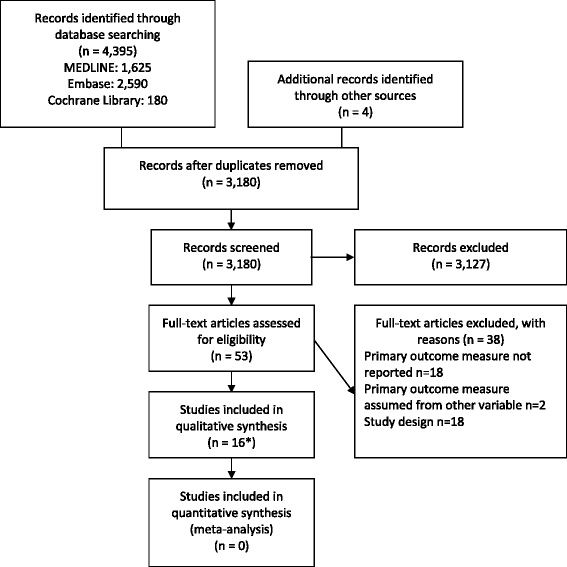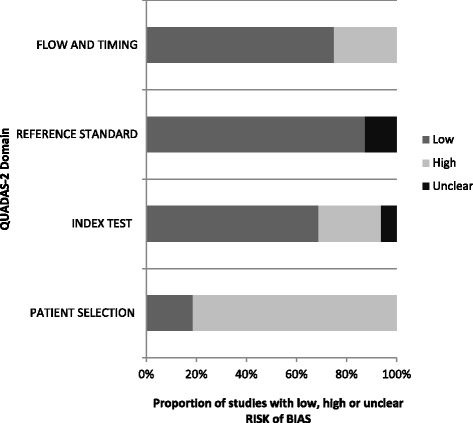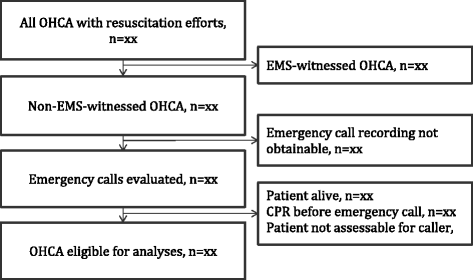Recognition of out-of-hospital cardiac arrest during emergency calls - a systematic review of observational studies
- PMID: 28143588
- PMCID: PMC5286832
- DOI: 10.1186/s13049-017-0350-8
Recognition of out-of-hospital cardiac arrest during emergency calls - a systematic review of observational studies
Abstract
Background: The medical dispatcher plays an essential role as part of the first link in the Chain of Survival, by recognising the out-of-hospital cardiac arrest (OHCA) during the emergency call, dispatching the appropriate first responder or emergency medical services response, performing dispatcher assisted cardiopulmonary resuscitation, and referring to the nearest automated external defibrillator. The objective of this systematic review was to evaluate and compare studies reporting recognition of OHCA patients during emergency calls.
Methods: This systematic review was reported in compliance with the PRISMA guidelines. We systematically searched MEDLINE, Embase and the Cochrane Library on 4 November 2015. Observational studies, reporting the proportion of clinically confirmed OHCAs that was recognised during the emergency call, were included. Two authors independently screened abstracts and full-text articles for inclusion. Data were extracted and the risk of bias within studies was assessed using the QUADAS-2 tool for quality assessment of diagnostic accuracy studies.
Results: A total of 3,180 abstracts were screened for eligibility and 53 publications were assessed in full-text. We identified 16 studies including 6,955 patients that fulfilled the criteria for inclusion in the systematic review. The studies reported recognition of OHCA with a median sensitivity of 73.9% (range: 14.1-96.9%). The selection of study population and the definition of "recognised OHCA" (threshold for positive test) varied greatly between the studies, resulting in high risk of bias. Heterogeneity in the studies precluded meta-analysis.
Conclusion: Among the 16 included studies, we found a median sensitivity for OHCA recognition of 73.9% (range: 14.1-96.9%). However, great heterogeneity between study populations and in the definition of "recognised OHCA", lead to insufficient comparability of results. Uniform and transparent reporting is required to ensure comparability and development towards best practice.
Keywords: Emergency medical dispatch; Emergency medical services; Key performance indicator; Out-of-hospital cardiac arrest; Systematic review; Uniform reporting.
Figures




References
-
- Wissenberg M, Lippert FK, Folke F, Weeke P, Hansen CM, Christensen EF, et al. Association of national initiatives to improve cardiac arrest management with rates of bystander intervention and patient survival after out-of-hospital cardiac arrest. JAMA. 2013;310:1377–84. doi: 10.1001/jama.2013.278483. - DOI - PubMed
-
- Cummins RO, Ornato JP, Thies WH, Pepe PE. Improving survival from sudden cardiac arrest: the “chain of survival” concept. A statement for health professionals from the advanced cardiac life support subcommittee and the emergency cardiac care committee, american heart association. Circulation. 1991;83:1832–47. doi: 10.1161/01.CIR.83.5.1832. - DOI - PubMed
Publication types
MeSH terms
LinkOut - more resources
Full Text Sources
Other Literature Sources
Medical
Miscellaneous

